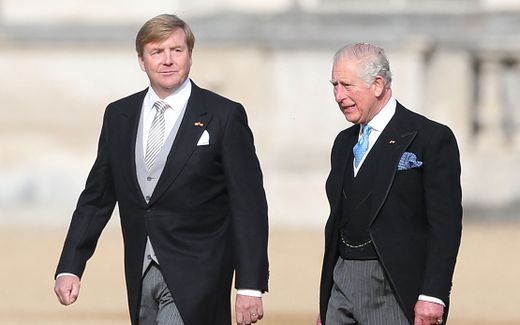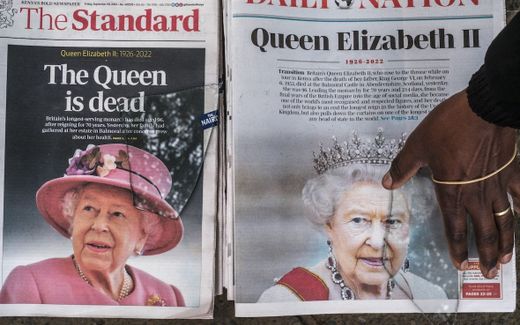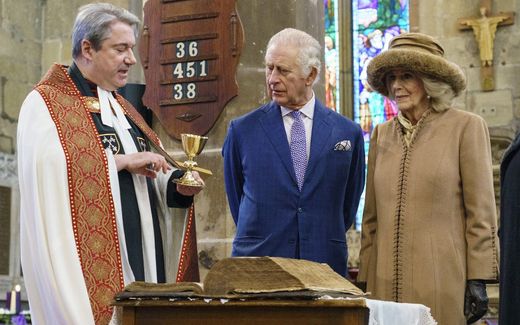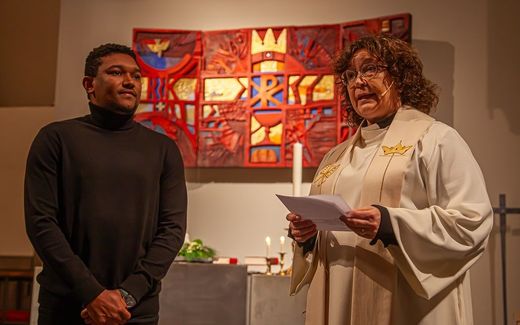Why the Danish throne change concerns Christians
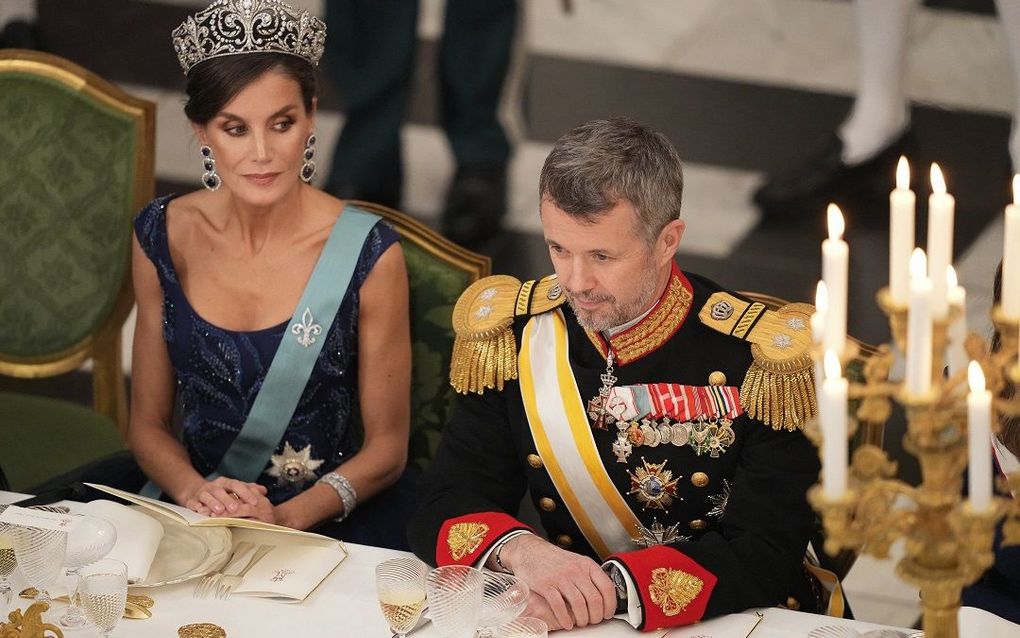
Queen Letizia of Spain sits next to Crown Prince Frederik of Denmark during a State Banquet at Christiansborg Castle in Copenhagen. Photo AFP, Mads Claus Rasmussen
Northern Europe
Will the new Danish king follow in his Christian mother's footsteps or will he be a more secular king? That is one of the questions Danish Christians have. The first signs are promising.
A shockwave it was. It was “the right time” to abdicate, said Queen Margrethe in her New Year’s speech. After almost 52 years on the throne of Denmark, the head of state indicated that “this is the right time” to abdicate.
She knew she broke with the tradition: royals in Scandinavia wield the sceptre until death. Margrethe intended to do the same. “In this country, we have not considered this way of stepping down. It has always been like this: you stay as long as you live,” she said in 2016. “That’s what my father and my predecessors did. And the way I see it, too.” However, back problems caused her to reconsider, she said.
While most people react appreciative of the Queen’s decision, some Christians are critical, reports the Kristeligt Dagblad. According to Katrine Winkel Holm, a parish priest, the transfer of power might set a precedent and become less meaningful. “Death gives a seriousness, a meaning and great sympathy to the next monarch,” she says to the Danish daily. Rasmus HC Dreyer, an assistant professor of church history at the University of Copenhagen, agrees. He assesses that this could have consequences for the mythical aura surrounding the royal house. “It becomes problematic because some of the divine power –what we also call the magic – disappears,” he says.
Alone
The Danish royal family and Christianity are closely linked. The Danish head of state is legally required to be a member of the Lutheran Church in her country and head of that church. Queen Margrethe is known to attend church services regularly. However, the faith only began to have meaning for her when she became Queen. “I felt very, very strong that I was not alone, and then it grew.”

Crown Prince Frederik, soon to be Frederik X, seems less concerned with faith than his mother. As recently as 2017, he said he “finds it hard to believe that a man with a big beard would be sitting on the clouds.” Still, according to several Danes, the first signs are positive. On Monday, the royal family announced it was calling a church service on Sunday, January 21st, to celebrate the succession. “The crown prince’s desire for a moment in church clearly marks an openness and at the same time a desire for continuity in the relationship with the church”. says historian and royal house expert Sebastian Olden-Jørgensen to Kristeligt Dagblad.
Liturgy change
The throne change will also mean a change in the Danish Church’s Sunday service. In the liturgy on Sunday, a pastor or priest explicitly prays for the royal family:
“May your Hand protect our people and our country and all those in authority, bless and keep our King (name), Queen (name) and our royal family (names). Grant them and us your grace, peace and blessing and, after a Christian life, eternal bliss.”
If the priest wishes to mention names, today, one prays for Queen Margrethe II, Crown Prince Frederik, Crown Princess Mary and the entire royal house. That will now be updated, although it is unknown when this prayer will change. It is also unclear whether Queen Margrethe will be mentioned in the church prayer.
Symbolic
However, a church celebration a week after the coronation does not go far enough for some. Nikolaj Bøgh, a councillor and parliamentary candidate for the Conservative People’s Party, argues that a church ceremony should be added to the coronation on January 14th. He argues in the Danish daily Berlingske that, since Queen Margrethe broke with tradition by abdicating the throne while being alive, there should be a new tradition. “Let’s have a church ceremony, where the bishop of Copenhagen blesses the new king’s deed, preferably with the inclusion of the crown regalia, which today are only used in connection with the monarch’s death, but which also have an important symbolic meaning for the future monarch and his role.”
According to Bøgh, the monarchy is not only a worldly affair but, to a great extent, also a spiritual one. “Margrethe II is Queen by God’s grace, and thus not by her own or the Prime Minister’s. There is something bigger at stake, a close interweaving with Christianity, which for more than 1,000 years has been the faith of the country and the head of state.”
Royal motto
An old tradition in the Danish royal house is the so-called 'royal motto'. With such a slogan, the monarch emphasises values or beliefs he considers high. But although recent predecessors of Crown Prince Frederik mentioned God in their motto, it remains to be seen whether the new king will follow in their footsteps. Danish news website Kirke.dk, part of Kristeligt Dagblad, argues that it probably comes across as "unnatural" to mention God: "it follows from his image as a 'modern man of the people' that his folk church and eventual faith are of the wordless kind." Whether or not he mentions God will be known on January 14th.
Coronations and Christianity
During recent European coronations, the role of Christianity had varied quite a bit. An overview.
Netherlands: God not mentioned

“God was not mentioned”, read a commentary in the Dutch Christian daily Reformatorisch Dagblad on May 1st, 2013. The day before, King Willem-Alexander acceded to the throne following Queen Beatrix’s abdication. But contrary to his mother, he did not mention anything about his faith during his coronation speech, except when he took the oath. While Queen Beatrix in 1980 expressed her desire to draw her strength from her faith, King Willem-Alexander mentioned none of that. “Unfortunately, however, it must be noted that from a biblical perspective, the foundation of his government is tenuous”, the newspaper’s commentary read.
Great Britain: protector of all religions

Things were different in Great Britain last year. It is estimated that more than 300 million people worldwide witnessed a coronation full of Christian symbolism. But Charles cannot and will not choose between defending the Anglican faith or protector of all religions. Before the official liturgy of the coronation ceremony was released, there was doubt whether Charles would want to be called the protector of the faith or opt for the designation protector of the faith, without the word “it”. The published liturgy put an end to that doubt. As far as wording is concerned, Charles opts for the former but has previously made it known that, in terms of content, he sees himself primarily as the head of state who will protect the freedom of all faiths and believers in the kingdom.
Related Articles


